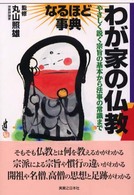- ホーム
- > 洋書
- > 英文書
- > Cinema / Film
Full Description
Examines how Hollywood responded to and reflected the political and social changes that America experienced during the 1930sIn the popular imagination, 1930s Hollywood was a dream factory producing escapist movies to distract the American people from the greatest economic crisis in their nation's history. But while many films of the period conform to this stereotype, there were a significant number that promoted a message, either explicitly or implicitly, in support of the political, social and economic change broadly associated with President Franklin D. Roosevelt's New Deal programme. At the same time, Hollywood was in the forefront of challenging traditional gender roles, both in terms of movie representations of women and the role of women within the studio system. With case studies of actors like Shirley Temple, Cary Grant and Fred Astaire, as well as a selection of films that reflect politics and society in the Depression decade, this fascinating book examines how the challenges of the Great Depression impacted on Hollywood and how it responded to them.Topics covered include:How Hollywood offered positive representations of working womenCongressional investigations of big-studio monopolization over movie distributionHow three different types of musical genres related in different ways to the Great Depression the Warner Bros Great Depression Musicals of 1933, the Astaire/Rogers movies, and the MGM 'kids' musicals of the late 1930sThe problems of independent production exemplified in King Vidor's 'Our Daily Bread'Cary Grant's success in developing a debonair screen persona amid Depression conditionsContributors Harvey G. Cohen, King s College LondonPhilip John Davies, British LibraryDavid Eldridge, University of HullPeter William Evans, Queen Mary, University of LondonMark Glancy, Queen Mary University of LondonIna Rae Hark, University of South CarolinaIwan Morgan, University College LondonBrian Neve, University of BathIan Scott, University of ManchesterAnna Siomopoulos, Bentley UniversityJ. E. Smyth, University of WarwickMelvyn Stokes, University College LondonMark Wheeler, London Metropolitan University
Contents
Introduction: Hollywood and the Great Depression, Iwan Morgan
Section I: Hollywood Politics and Values1: The Political History of Classical Hollywood: Moguls, Liberals and Radicals, Mark Wheeler2: Columbia Pictures and the Great Depression: A Case Study of Political Writers, Ian Scott3: Organization Women and Belle Rebels: Hollywood's Working Women in the 1930s, J.E. Smyth4: The Congressional Battle over Motion Picture Distribution, 1936-1940; Catherine Jurca
Section II: Stars5: Shirley Temple and Hollywood's Colonialist Ideology, Ina Rae Hark6: Astaire and Rogers: Carefree in Roberta, Peter William Evans7: The 'Awful Truth' About Cary Grant, Mark Glancy
Section III: Movies8: Footlight Parade: The New Deal on Screen, Harvey G. Cohen9: Our Daily Bread: 'Cooperation', 'Independence', and Politics in Mid-1930s Cinema, Brian Neve10: Embodying the State: Federal Architecture and Masculine Transformation in Hollywood Films of the New Deal Era, Anna Siomopoulos11: 'We're Only Kids Now, But Someday ... : Hollywood Musicals and the Great Depression 'Youth Crisis, David Eldridge12: Chaplin's Modern Times: The Reception of the Film in the US, France, and Britain, Melvyn Stokes13: John Ford's Young Mr Lincoln: A Popular Front Hero for the Late 1930s, Iwan Morgan
Contributors and Editors






